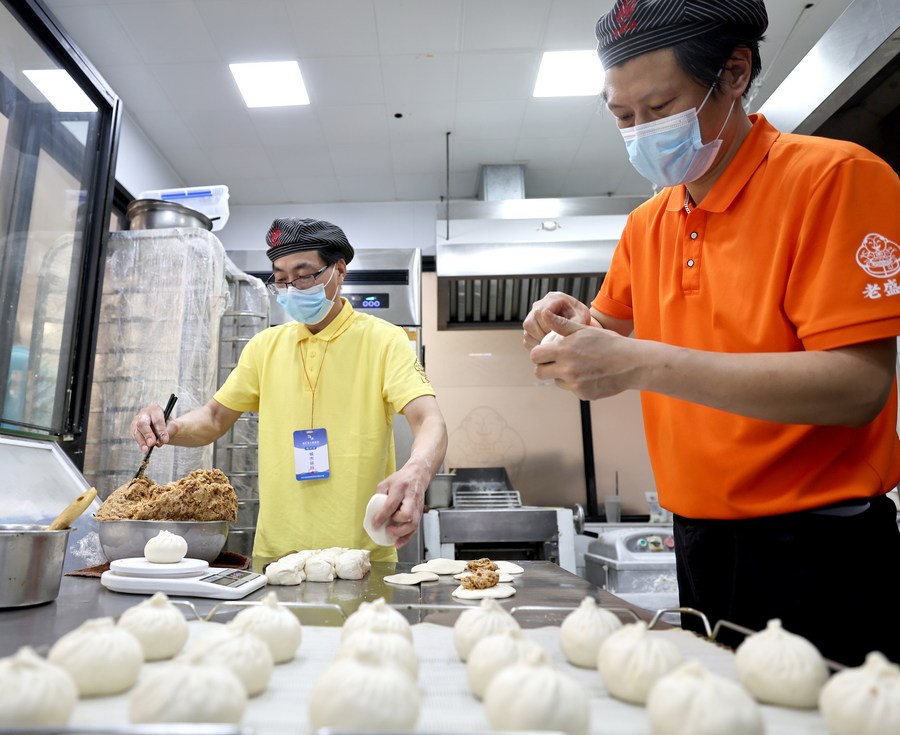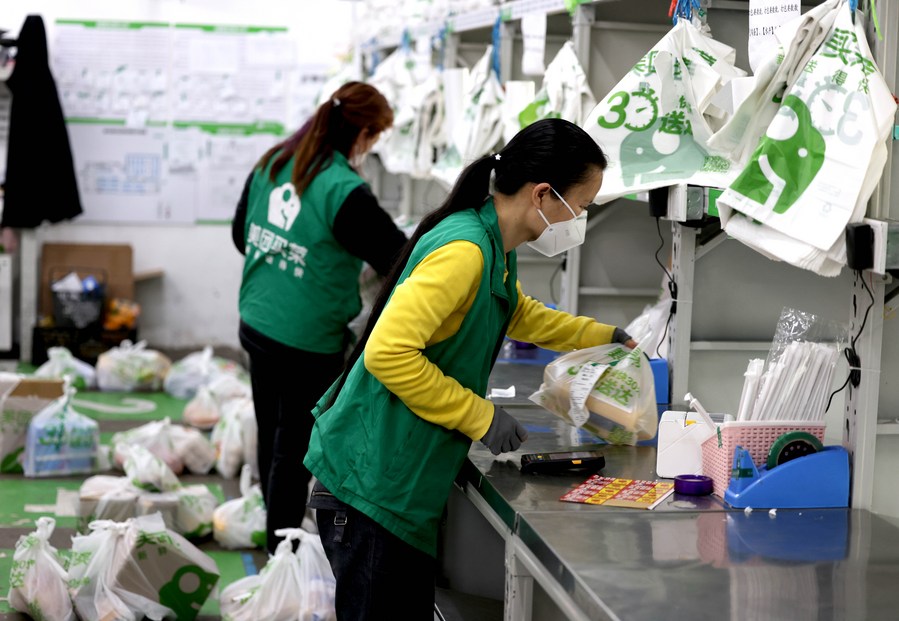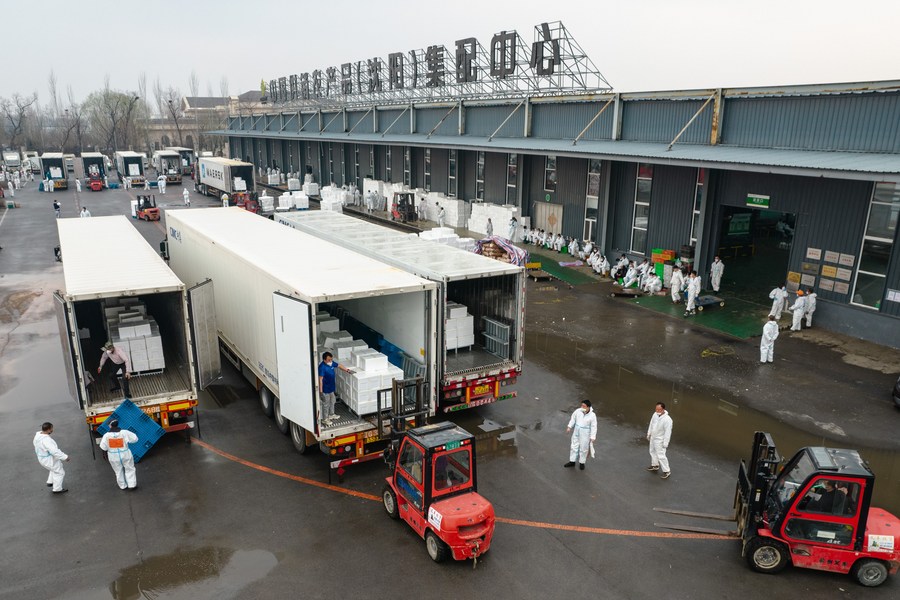
Shanghai has been working hard to boost the supply of daily necessities for its population of 25 million, which has been living under closed-off management since late March due to a resurgence of COVID-19.
The stringent requirements of closed-off management have resulted in a supply crunch, which authorities have been seeking to ease in various ways. Among the key moves in recent days has been the re-opening of selected retail businesses providing food and other necessities to the local population.
"I had freshly baked bread for the first time since the closure," said Zhou Ying, who lives in the downtown area.
Zhou's bread was supplied by a bakery called "THE CUE" that re-opened recently, bringing more delicious staple foods to the residents of surrounding communities.
"THE CUE" has sold nearly 1,000 bread items over three days, mostly baguettes, rye sourdough, cranberry toast and croissants -- a favorite with children. Nearby residents place their group orders using smartphones, with a minimum consumption of 300 yuan (about 47 U.S. dollars) and another 50 yuan for delivery. The bakery staff, who live in the store and take COVID-19 tests every day, deliver the bread themselves.
"We are also members of the community, and any infection would bring risks to our customers," said an employee called Ken. "We cherish the opportunity to return to work," he said.

Employees prepare food for online orders at a food store in east China's Shanghai, April 10, 2022. (Xinhua/Chen Jianli)
Such efforts are being made in different districts across the city, based on instructions from the municipal government. At the district level, local governments have been contacting enterprises to encourage them to facilitate the flow of supplies.
In Pujiang Town under Minhang District, the local government contacted relevant enterprises in response to reports that infants were at risk of running out of food. Upon receiving the demand, a local dairy company prepared and transported milk powder to the community just before dawn. The community workers were already waiting to deliver it door to door.
The task with which authorities are faced is a big one. The COVID-19 epidemic situation in many parts of China has fluctuated since March, and the epidemic prevention situation in Shanghai is very serious.
Data for Shanghai released on April 14 showed that 2,573 new local COVID-19 cases and 25,146 asymptomatic ones were registered on the previous day, bringing the total number of infections to over 200,000 in the recent resurgence.
Despite the fierce situation, the re-opening of the city's supermarkets and stores in lower-risk areas is progressing steadily in line with certain epidemic prevention and control requirements.

Staff members of the online grocery platform Meituan Maicai sort and pack ordered groceries in east China's Shanghai, April 12, 2022. (Xinhua/Jin Liwang)
Inside a supermarket in Shanyang Town under Jinshan District that re-opened on Wednesday, all the staff were wearing protective gear as they went about their work. Products were in sufficient supply, and customers were seen wearing masks and queuing up to weigh or pay, maintaining a social distance of one meter.
Shen Chao, the acting manager, said the operation is well organized.
"We open at 9:00 a.m. and close at 5:00 p.m., or according to customer and government requirements. All areas of the market are disinfected thoroughly every day. Customers are required to provide their health code and nucleic acid test report, and to register their ID card," said Shen.
As of Thursday, the Lianhua supermarket chain has re-opened 721 stores, including those in risk areas that only offer online delivery. French retailer Carrefour also said it has doubled the number of online shops in operation compared with the previous week, and expects to re-open 80 percent of its stores in the city by the weekend.

Aerial photo shows volunteers sorting vegetables to be transported to Shanghai in an agricultural products distribution center in Shenyang, northeast China's Liaoning Province, April 11, 2022. (Xinhua)
More broadly, China has taken various steps to facilitate logistics and ensure the supply of necessities amid COVID-19 flare-ups. The government has urged all possible efforts to ensure the smooth transportation of medical and epidemic-prevention supplies, daily necessities, postal and express deliveries, as well as production materials, so as to minimize the impact on economic and social activities.
As of April 11, 11 provinces and regions have been mobilized to send a total of 18,000 tonnes of vegetables and other daily necessities to Shanghai, and donated more than 5,400 tonnes of bread and other food, said Li Danghui, an official with the Ministry of Commerce.
The ministry has also guided relevant departments of Shanghai to build transit stations for daily necessities and facilitate zero-contact distribution. Such stations can help prevent infections being passed on by truck drivers and unsterilized packaging.
Three such contactless stations have been built so far, and another one is under construction. Over 4,000 tonnes of goods have been transported into Shanghai via those stations as of Thursday.